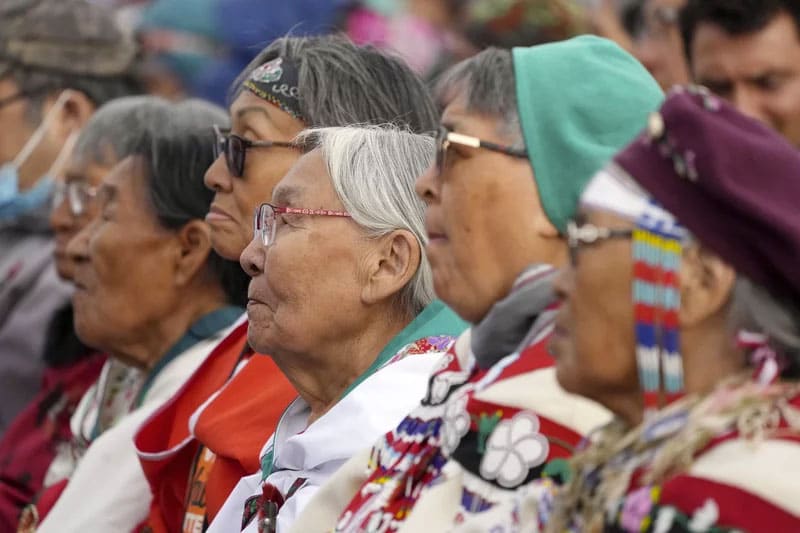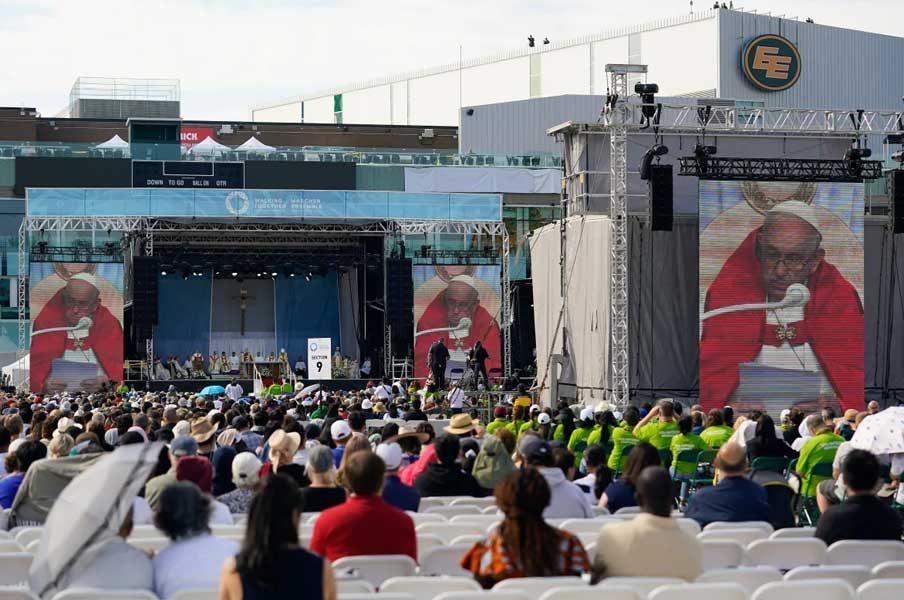Earlier this year, when Pope Francis expressed “shame and sorrow” over the Catholic Church’s role in the abuse and death of thousands of Indigenous Canadian school children, many believed that was as far as the church would go in terms of an official statement. The Catholic Church, after all, isn’t exactly in the business of making apologies.
Pope Francis, however, bucked that trend when he not only issued a formal apology but travelled to the country to make his statement on Canadian soil.
“I humbly beg forgiveness for the evil committed by so many Christians against the Indigenous peoples.” These remarks were made near the site of the former Ermineskin Indian Residential School, which was one of the largest government-funded Catholic schools when it operated from 1916 to 1975. Pope Francis asked forgiveness “for the ways in which many members of the church and of religious communities cooperated, not least through their indifference, in projects of cultural destruction and forced assimilation promoted by the governments of that time, which culminated in the system of residential schools.”
While the apology has been met with appreciation and considered a step in the right direction, it has also been criticized as being far too late. A 2015 Truth and Reconciliation Commission report concluded that, of the 150,000 children from Canada’s First Nations tribes that were placed in these schools, an untold amount suffered from a variety of abuse, died, and were buried in unmarked graves.
These schools were not meant to educate, the report states, “but primarily to break their link to their culture and identity.” It labelled the operation of the schools as “cultural genocide.” Though the remains of thousands of bodies have been discovered spread across numerous mass graves, the true number of children who died at these schools will likely never be known.
Though the official findings were released in 2015, reports of sexual, physical, and emotional abuse taking place at the schools date back at least three decades. While Indigenous leaders appreciate how forthright Pope Francis has been, they have made sure to point out the omissions in the apology, which did not make a single mention of sexual abuse.

Many argue that the apology does not go far enough. The Catholic Church still holds sealed records from the schools in question that, if released, could shed even more light on what exactly happened at these 139 schools. At the same time, several tribal artifacts, which were supposedly gifts to Pius XI, the pope from 1922 until 1939, are being held at the Vatican. Members of the Indigenous Canadian community have requested that both the records be released, and the artifacts be returned, but the church has given no indication that it will do either.
Canadian Prime Minister Justin Trudeau, whose father was prime minister while some of the residential schools were still operating, echoed the statements of Indigenous leaders and insisted that more needed to be done to atone for the sins of the past. The Canadian government issued an apology for their role in the affair in 2008, when then-Prime Minister Stephen Harper cited the operation of the schools as a sad chapter in Canadian history.
To the Pope’s credit, he did acknowledge that apologies are not enough and that concrete actions must be performed to reconcile fully. Whether or not those actions will actually come to fruition remains to be seen.
Like what we have to say? Sign up to subscribe to email alerts and you’ll never miss a post.










